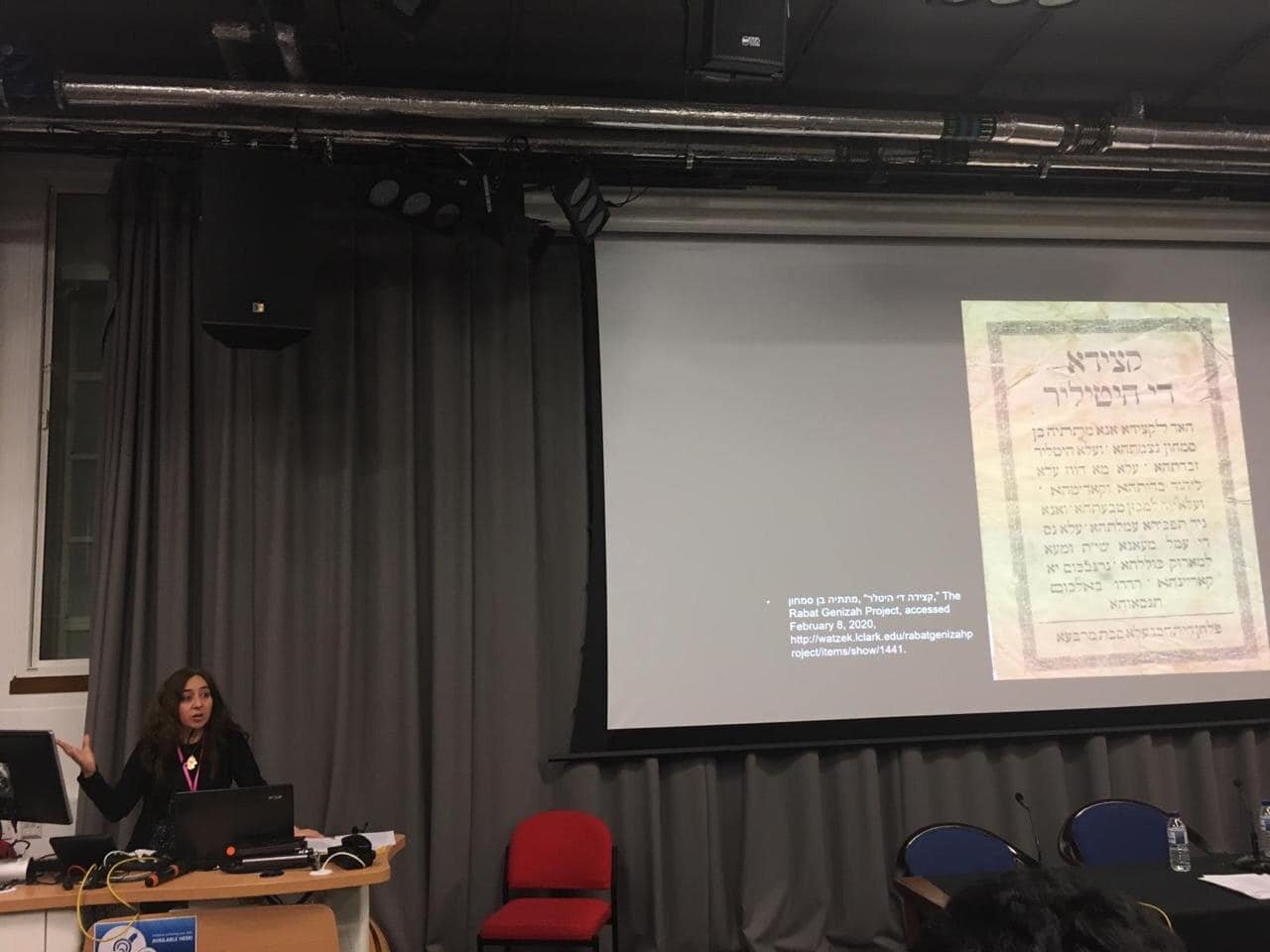How Morocco protected its Jews during Nazi rule, reflected in song
The Holocaust is usually thought of as a European story, but at a fascinating talk at JMI’s Yallah conference on Sunday 9 February, Dr Vanessa Paloma Elbaz brought to light a little-known story of Moroccan resistance to Naziism.
Elbaz, a research associate at the University of Cambridge who specialises in the music of the Mahgreb (the Arabic countries of north-west Africa), recalled how she had come across a sheet of printed lyrics for a song called ‘Qsida dial Hitler’ (‘Poem for Hitler’) during a visit to Casablanca’s Jewish Museum. “Qsida is a poetic form used throughout the Arabic world, Turkey and Persia,” explained Elbaz, adding that the museum's original copy had also been digitised by the Rabat Genizah Project. “The original is at the Jewish Museum in Casablanca,” she continued, “and there is another example that I know of at the Ben Zvi Institute in Israel.”
The song, which starts off in Hebrew and then becomes a long poem in Judeo-Arabic, is an astonishing account of the Nazi’s rise to power and their assault on the Jews of Europe, and includes a description of deportations in Czechoslovakia and Austria.
During World War II the Moroccan Jewish community initially witnessed the Nazi horrors from the wave of refugees arriving on Moroccan shores and through the international press. But Morocco was a French Protectorate and in 1940 the country also became subject to the race laws set down by the pro-Nazi Vichy government in France. However, in a rare act of bravery, Morocco’s King Mohammed V kept the lives and property of the country’s 250,000 Jews under his protection throughout the war and they escaped danger.
‘Qsida dial Hitler’ is one of various songs in Judeo-Arabic written during the war that represented what Elbaz refers to as a “sonic resistance” to the oppression felt by the Jewish community in the Maghreb and the genocide experienced by those in Europe. Maghrebi Jews used this form of encoded communication to rally for unity and tenacity, and expressed it in a language understood by both Muslims and Jews.
In 2013, Elba recorded the great Moroccan liturgical singer Jacob Wizman perform the song at his house in Casablanca. Wizman explained that schools had traditionally sung it on 11 November (the day the Allied forces liberated Morocco), but since the 1960s the song had virtually disappeared.
Discussion of the Holocaust and the role of the Moroccan authorities in resisting Vichy was only a relatively recent thing, said Elbaz. Is it time, she wondered, to “bring this song out of the archive and take it into Arab schools so students can hear the story in a language that resonates with them?”
By Rebecca Taylor
Photos © JMI
The inaugural Yallah: Judeo-Arabic Music Conference hosted by JMI took place in London, Sunday 9 & Monday 10 February. Find out more about the event in our report on Yallah: Day One and our review of Haim Botbol's concert.



